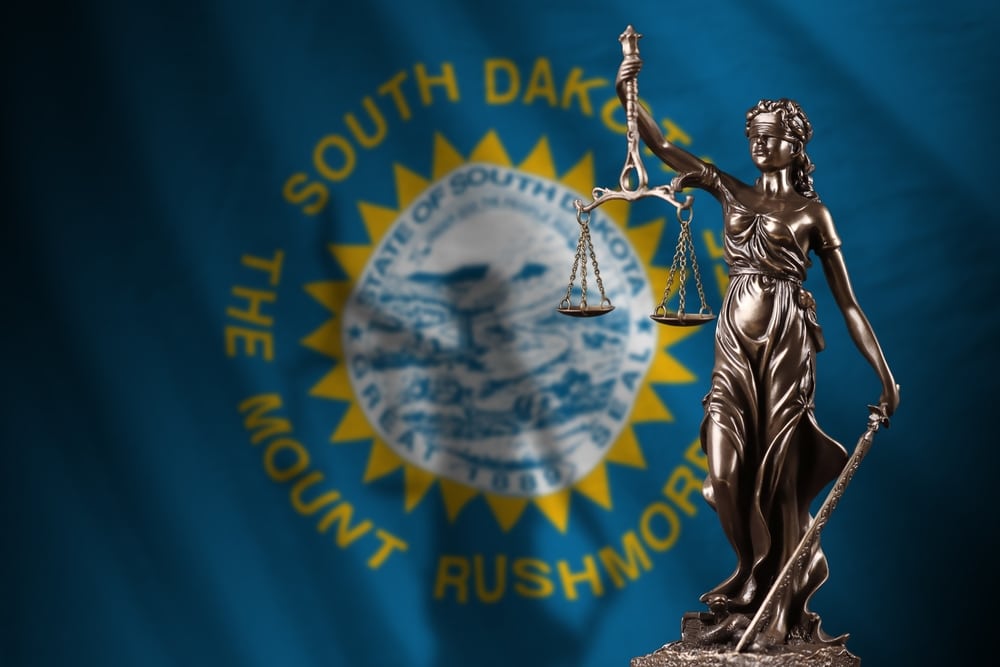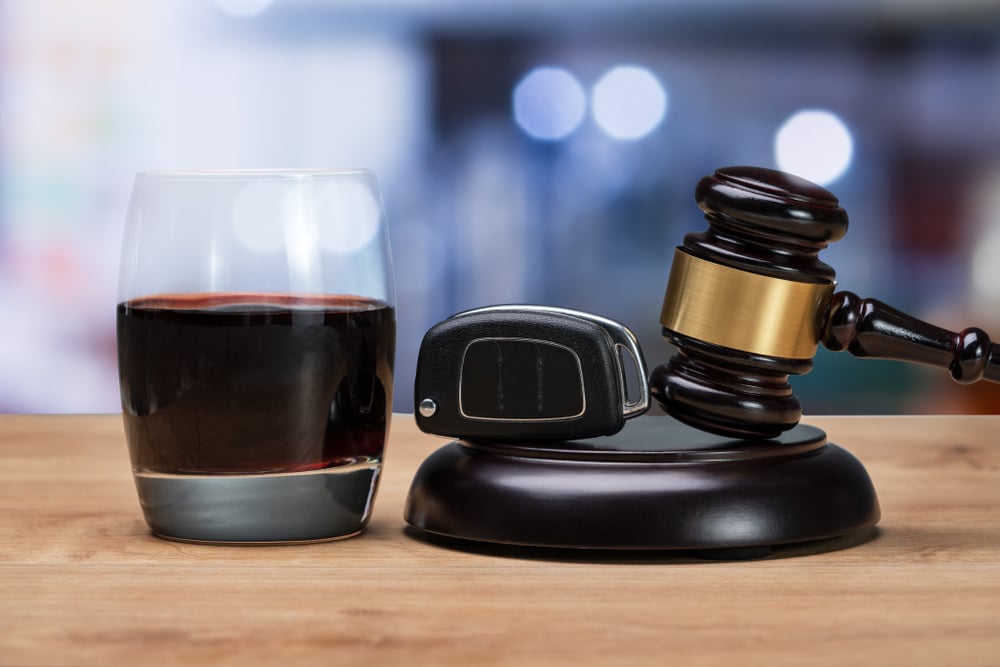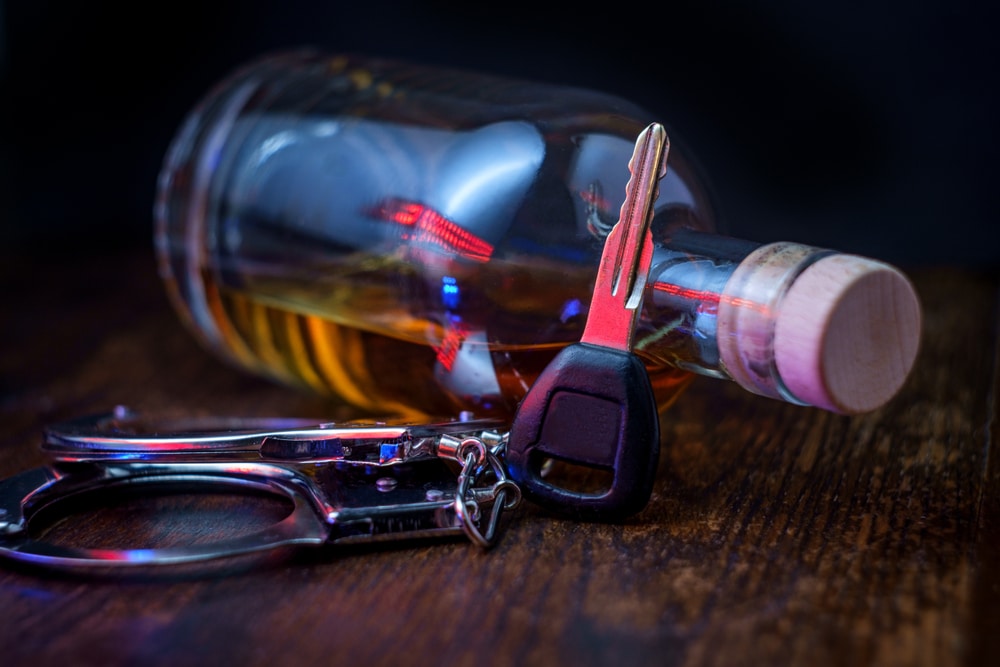
South Dakota maintains strict driving under the influence (DUI) laws, with a blood alcohol concentration (BAC) limit of 0.08% for drivers 21 and older. The state follows a zero-tolerance policy for drivers under 21, with a BAC limit of 0.02%. South Dakota’s DUI laws apply to both alcohol and drug impairment, including prescription medications that affect driving ability.
The state operates under implied consent laws, meaning drivers automatically consent to chemical tests when operating a vehicle on South Dakota roads. Refusing a chemical test results in an automatic one-year license revocation, separate from any DUI penalties. Law enforcement agencies across the state coordinate efforts to detect and prevent impaired driving through various enforcement strategies.

0.08% or higher for regular drivers and 0.04% for commercial drivers

Yes

30 days

Mandatory

No
South Dakota faces unique challenges in DUI enforcement due to its rural nature and vast geographic area. The state’s combination of remote highways, tribal lands, and urban centers creates diverse enforcement scenarios. Seasonal events, such as the Sturgis Motorcycle Rally, present additional challenges for law enforcement and require heightened enforcement efforts.
The state has implemented comprehensive programs to address DUI issues, with particular emphasis on rural road safety and coordination between jurisdictions. Recent years have seen increased focus on drug-impaired driving, including prescription medications and illegal substances.
First-time DUI offenders face penalties including up to one year in jail, fines up to $2,000, and license suspension for 30 days to one year. The court may allow restricted driving privileges with installation of an ignition interlock device (IID). First offenders must also complete a chemical dependency evaluation and follow recommended treatment.
Multiple offenses carry significantly harsher penalties. Second offenses within ten years result in mandatory jail time of at least ten days, fines up to $4,000, and license suspension for at least one year. Third and subsequent offenses are felonies, carrying mandatory prison time, substantial fines, and extended license revocation periods. The state maintains a ten-year lookback period for prior offenses.
DUI charges involving accidents resulting in injury or death carry enhanced penalties under South Dakota law. Vehicular battery (causing serious injury while driving impaired) is a Class 4 felony, while vehicular homicide is a Class 3 felony carrying up to 15 years in prison. The presence of minors in the vehicle during a DUI offense results in additional charges and enhanced penalties.
Commercial drivers face stricter standards with a BAC limit of 0.04% and more severe consequences, including potential lifetime commercial license disqualification. The state also has specific provisions for operating boats and other recreational vehicles while impaired.
South Dakota law enforcement employs various methods to detect and apprehend impaired drivers. Officers conduct regular patrols focusing on behavioral indicators of impairment and operate sobriety checkpoints, particularly during high-risk periods. The state’s highway patrol maintains specialized DUI enforcement units trained in advanced detection techniques.
Rural enforcement presents unique challenges, requiring coordination between state, local, and tribal authorities. Officers receive specialized training in drug recognition and field sobriety testing to address both alcohol and drug impairment.
Law enforcement utilizes modern technology for DUI detection, including preliminary breath testing devices for roadside screening. Evidentiary breath testing stations at law enforcement facilities provide court-admissible BAC results. Blood testing, conducted at the state health laboratory, offers precise measurement of alcohol and other substances.
The state maintains strict standards for testing equipment calibration and operator certification. Many patrol vehicles are equipped with dashboard cameras to document traffic stops and field sobriety tests. The state continues to evaluate new technologies for detecting drug impairment.
South Dakota requires all DUI offenders to complete chemical dependency assessments and follow recommended treatment plans. First-time offenders typically attend education programs and counseling sessions, while repeat offenders face more intensive treatment requirements. The state emphasizes evidence-based treatment approaches and monitors program effectiveness.
Treatment programs address both alcohol and drug dependency issues, with increasing focus on prescription drug abuse. Programs may include individual counseling, group therapy, and educational components. The state maintains certification standards for treatment providers and monitors program outcomes.
The state’s mandatory treatment framework establishes minimum requirements based on offense level and assessment results. First offenders must complete at least 12 hours of alcohol education and evaluation. Multiple offenders face requirements of up to 60 days of inpatient treatment or intensive outpatient programs.
Treatment providers must maintain state certification and follow standardized assessment protocols. The framework includes provisions for monitoring attendance and progress, with consequences for non-compliance including additional penalties and license suspension.


South Dakota employs various methods to monitor DUI offenders’ compliance with court orders and treatment requirements. Probation officers conduct regular check-ins and may require random drug and alcohol testing. The state’s 24/7 Sobriety Program requires twice-daily breath tests or continuous alcohol monitoring for certain offenders.
Ignition interlock devices include regular reporting requirements and anti-tampering features. Failure to comply with monitoring requirements results in immediate consequences, potentially including jail time and extended probation periods.
The South Dakota Department of Public Safety handles administrative aspects of DUI cases, including license suspensions and reinstatement procedures. Administrative license suspensions begin immediately upon arrest, separate from criminal proceedings. Offenders must complete specific requirements and pay fees before license reinstatement.
The administrative process includes maintaining violation records, monitoring compliance with suspension periods, and coordinating with courts and treatment providers. The department also manages the ignition interlock device program, including certification of installers and compliance monitoring.
DUI administrative procedures begin when law enforcement submits arrest documentation to the Department of Public Safety. Drivers receive notice of license suspension and have the right to request an administrative hearing within ten days. These hearings address specific issues such as probable cause and proper testing procedures.
The department maintains separate tracking systems for administrative and criminal penalties, ensuring all requirements are met before reinstating driving privileges. This includes verification of completed treatment programs, payment of fines, and installation of required devices.
South Dakota DUI cases proceed through various courts depending on severity. First and second offenses are typically handled in magistrate court, while felony cases go to circuit court. Defendants have the right to challenge evidence, including chemical test results and officer testimony.
The court process includes arraignment, pre-trial conferences, and possible trial proceedings. Plea agreements must follow state guidelines regarding minimum penalties. Judges consider factors such as BAC level, prior offenses, and aggravating circumstances when determining sentences.
Multiple state agencies collaborate in DUI enforcement and prevention. The South Dakota Highway Patrol leads enforcement efforts, while the Department of Public Safety coordinates licensing and administrative penalties. The Department of Social Services oversees treatment provider certification and program standards.
The state health laboratory provides chemical testing services and maintains testing standards. The Attorney General’s office provides legal guidance and prosecutes serious cases. The Office of Highway Safety coordinates prevention programs and grant funding.
South Dakota participates in the Driver License Compact, sharing DUI violation information with other states. Out-of-state convictions count toward repeat offender status, and South Dakota enforces other states’ license suspensions. The state’s position along major interstate highways requires coordination with neighboring states’ enforcement efforts.
DUI offenders moving between states must comply with both South Dakota requirements and those of their new state of residence. Interstate complications can arise regarding treatment program completion, ignition interlock requirements, and license reinstatement procedures.
South Dakota’s significant tribal lands create unique jurisdictional considerations for DUI enforcement. Coordination between state, tribal, and federal authorities is essential for effective enforcement. The state maintains agreements with tribal authorities regarding enforcement procedures and information sharing.
Rural areas present challenges for enforcement coverage and response times. Multi-jurisdictional task forces address enforcement in areas crossing multiple local jurisdictions. Federal lands within South Dakota may involve different procedures and coordination requirements.
DUI offenses generate significant costs for both individuals and the state. Individual costs include fines, legal fees, increased insurance rates, and lost wages. Installation and maintenance of ignition interlock devices add several hundred dollars monthly. Treatment program costs vary but typically range from $500 to several thousand dollars.
The state incurs substantial costs for enforcement, prosecution, incarceration, and monitoring of offenders. These costs are partially offset by fines and fees but represent a significant burden on public resources. Economic impacts extend to healthcare costs for injury treatment and property damage from DUI-related accidents.


DUI incidents impact South Dakota communities through loss of life, injury, and property damage. Rural areas face particular challenges with emergency response times and access to trauma care. Families face emotional trauma and financial hardship when members are involved in DUI incidents.
Public safety resources devoted to DUI enforcement reduce availability for other law enforcement needs. Healthcare systems bear the burden of treating DUI-related injuries, often without full compensation. Social services may need to support families affected by DUI consequences.
South Dakota continues to evaluate and update DUI laws based on emerging research and changing social conditions. Recent legislative discussions have focused on strengthening penalties for repeat offenders and expanding the 24/7 Sobriety Program. The state monitors national trends and best practices in DUI prevention and enforcement.
Proposed legislation often addresses issues such as lowering BAC limits, expanding ignition interlock requirements, and increasing mandatory minimum sentences for certain offenses. The state also considers technology-based solutions for monitoring and preventing impaired driving.
South Dakota increasingly relies on technology for DUI enforcement and monitoring. Advanced breath testing devices provide more accurate results and better documentation. Electronic monitoring systems, including GPS tracking and remote alcohol monitoring, offer new options for supervising offenders.
The state evaluates emerging technologies such as oral fluid testing for drug detection. Integration of data systems allows better tracking of offenders across jurisdictions and agencies. Technology improvements in ignition interlock devices provide enhanced monitoring capabilities.
New challenges in DUI enforcement include the impact of prescription drug impairment and the increasing prevalence of drug-impaired driving. The state must adapt testing and enforcement procedures to address these emerging issues. Training programs for law enforcement continue to evolve to address new forms of impairment.
The rise of ride-sharing services influences DUI patterns and prevention strategies, particularly in urban areas. Changes in social attitudes toward alcohol consumption and impaired driving require ongoing adjustment of education and prevention programs.
South Dakota maintains comprehensive DUI prevention programs targeting various age groups and demographics. School-based programs focus on youth education and prevention. Public awareness campaigns use multiple media channels to reach different audiences with prevention messages.
The state partners with businesses, particularly during major events and tourist seasons, to promote responsible serving practices and alternative transportation options. Community-based programs engage local organizations in prevention efforts and support for affected families.
DUI convictions can significantly impact employment opportunities, particularly in positions requiring driving or professional licenses. Employers may terminate employment based on DUI convictions, especially for positions involving transportation or safety responsibilities. Background checks regularly reveal DUI convictions, affecting job applications and security clearances.
Professional license holders, including healthcare workers and educators, may face disciplinary action or license suspension. Commercial drivers face particularly severe consequences, including possible career-ending license disqualification. Employment restrictions can persist long after legal penalties are completed.
South Dakota monitors treatment program outcomes through recidivism rates and completion statistics. Programs combining education, counseling, and support services show higher success rates. The state regularly evaluates program effectiveness and adjusts requirements based on outcome data.
Factors affecting treatment success include program length, intensity, and individual participation levels. Support services, including mental health care and social service referrals, contribute to better outcomes. The state continues to refine treatment approaches based on evidence-based practices.
DUI convictions typically result in substantial insurance premium increases, often doubling or tripling rates. Insurers may cancel coverage, requiring offenders to seek high-risk insurance at premium rates. South Dakota requires proof of insurance coverage before reinstating driving privileges after a DUI suspension.
Insurance implications can extend beyond the individual to affect household members and employers. The state’s insurance requirements for DUI offenders often exceed minimum coverage levels for other drivers. These increased costs typically persist for several years after conviction.


South Dakota requires SR-22 insurance certification for DUI offenders seeking license reinstatement. This special insurance filing proves maintenance of required coverage levels. Offenders must maintain SR-22 coverage for at least three years following license reinstatement.
Failure to maintain SR-22 coverage results in immediate license suspension. The cost of SR-22 filing adds to already increased insurance premiums. Multiple offenders may face extended SR-22 requirements and higher coverage minimums.
DUI convictions impact multiple aspects of daily life beyond legal penalties. Transportation difficulties affect work, education, and family responsibilities, particularly in rural areas where alternative transportation options are limited. Financial strains from fines, fees, and increased insurance costs can persist for years.
Recovery support services help address these challenges through counseling, support groups, and practical assistance. Some offenders require long-term support to maintain sobriety and rebuild affected areas of their lives. The state recognizes the importance of addressing these quality of life issues in prevention of repeat offenses.
South Dakota’s approach to DUI enforcement combines strict laws, comprehensive monitoring programs, and emphasis on treatment and rehabilitation. The state’s unique challenges, including vast rural areas and tribal jurisdictions, require specialized enforcement strategies and strong coordination between agencies. The 24/7 Sobriety Program demonstrates South Dakota’s innovative approach to preventing repeat offenses.
The economic and social impacts of DUI extend beyond individual offenders to affect families, employers, and communities. The state’s response includes both punitive measures and support services aimed at preventing future offenses. Administrative procedures work in parallel with criminal proceedings to ensure comprehensive monitoring and compliance.
Treatment requirements reflect recognition of substance abuse as an underlying factor in many DUI cases. Programs combine education, counseling, and support services, with requirements varying based on offense severity and individual assessment results. The state continues to evaluate and update treatment approaches based on outcome data.
Interstate considerations and special jurisdictional issues, particularly regarding tribal lands, require careful coordination among agencies and jurisdictions. The state participates in information-sharing agreements and recognizes out-of-state convictions in determining repeat offender status. Emerging issues, including drug impairment and changing social patterns, present ongoing challenges for enforcement and prevention efforts.
Technology plays an increasing role in enforcement, monitoring, and prevention strategies. The state continues to evaluate and implement new technologies while maintaining focus on evidence-based practices and program effectiveness. Prevention efforts target multiple audiences through various channels, recognizing the need for comprehensive approaches to reducing DUI incidents in both rural and urban areas.
At DUI 101, our mission is to empower you with the knowledge needed to make informed decisions during this challenging time. Explore our articles and guides to better understand your situation and the steps ahead.
© 2024 Chapman SEO LLC. This website is for educational and informational purposes only. All content is created using AI technology and maintained by non-lawyers and should not be considered legal advice. The information provided is general in nature and may not be suitable for your specific situation. Always consult with a qualified legal professional for advice regarding your individual circumstances. We do not create attorney-client relationships through this website. By using this site, you acknowledge that you have read and understand these terms.